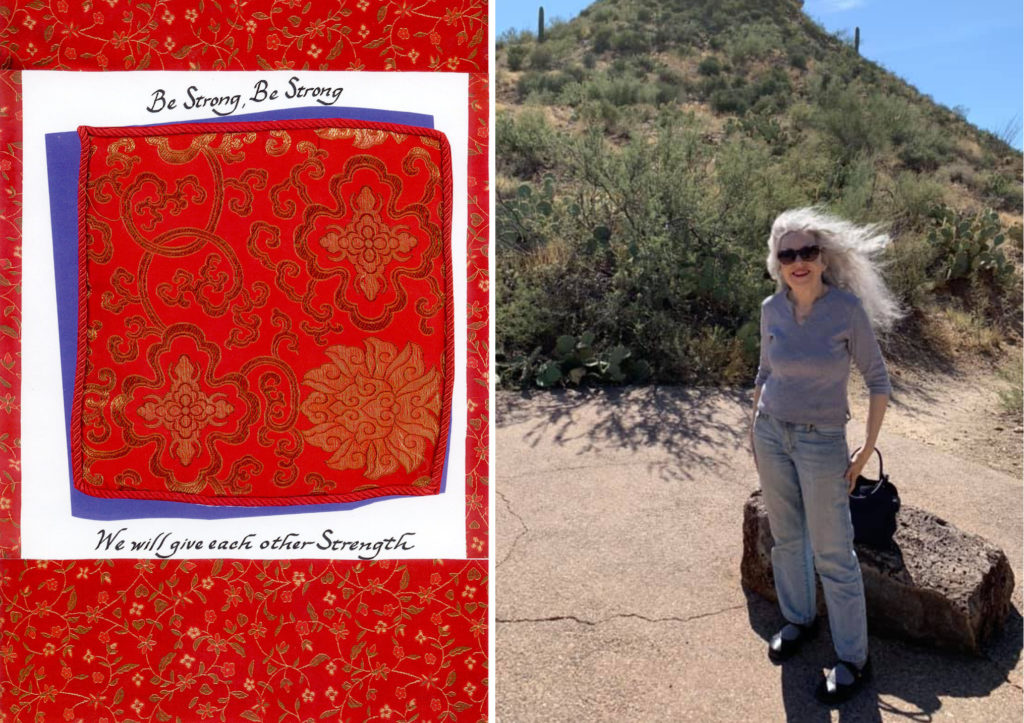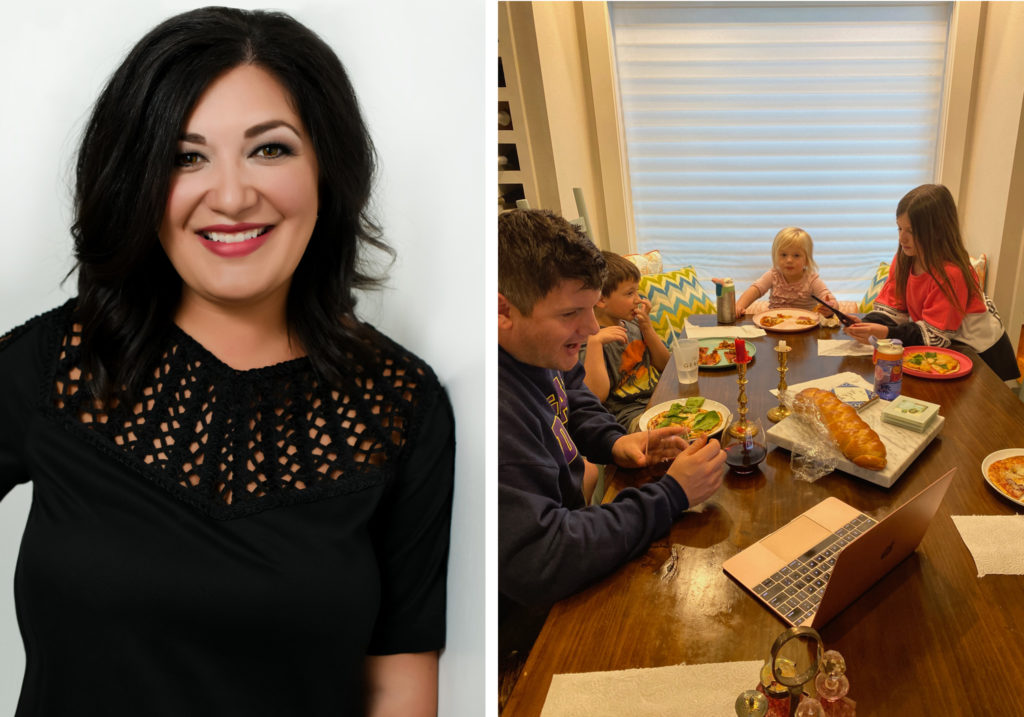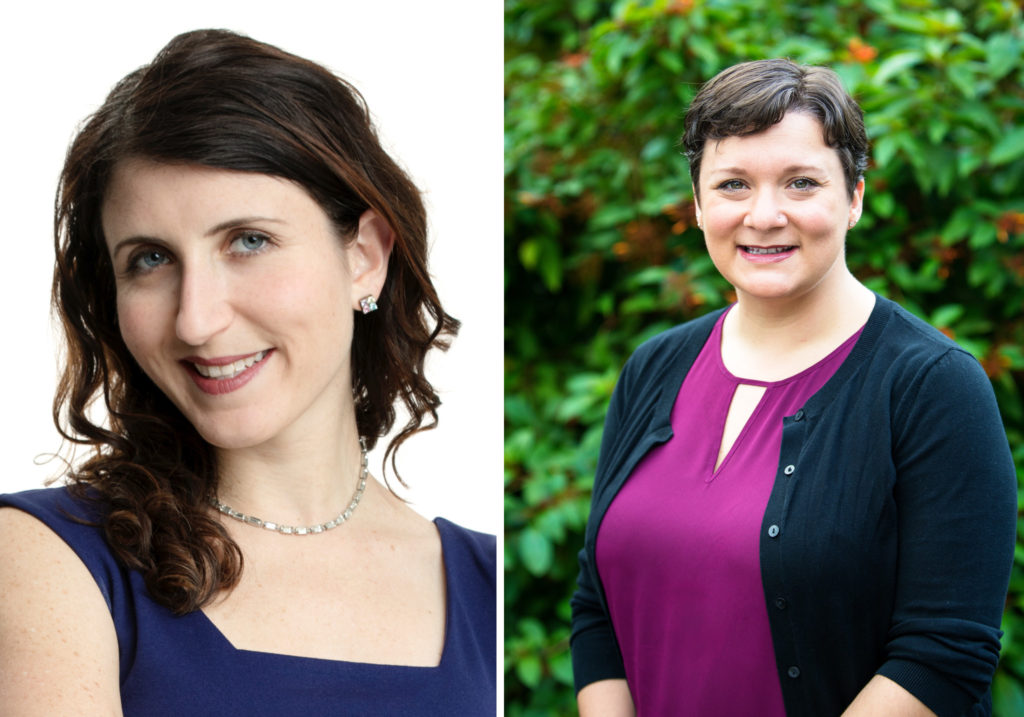From hosting Zoom Seders to sharing art to coordinating catering menus, here’s how Austin women are celebrating Passover.
By Courtney Runn
With the first night of Passover quickly approaching, rabbis are pivoting to digital Seders, restaurants and catering companies are offering to-go dinners and last-minute shoppers are scouring H-E-Bs for matzah.
Irene Konig, a resident of Austin for more than 40 years, normally observes Passover at her daughter’s home but now she’s not even leaving her house for groceries. She didn’t think she would be able to celebrate the holiday this year, but then she found a box of matzah in her pantry from 2013.
“Matzah might hold up pretty well,” she says, with a laugh. “It could be still edible.”
Konig attended a virtual Seder specifically for seniors last week and is hoping to find more virtual dinners to join. She notes the irony that Passover is a “holiday of freedom from oppression,” and yet we’re all confined to our homes. The Jewish holiday commemorates the ancient Hebrews escaping slavery in Egypt and the 10 plagues that befell the country as they attempted to leave. For the first time in several generations, the ancient plagues feel much more real.
Is Konig praying for a miracle similar to the one her ancestors experienced? “I haven’t been praying for a miracle, no,” she says. “I’m praying for common sense for people!”
She’s also offering hope through her art. Throughout the month of February, Konig posted her Valentine’s Day-inspired art but transitioned to “inspiration prints” to encourage her social-media followers. Some of her pieces borrow verses of Psalms; one reads, “Be Strong, Be Strong. We will give each other strength.”

Photos courtesy of Irene Konig
Becky Levin Navarro grew up in a mixed-religion home and didn’t start fully celebrating Passover until her daughter was born 10 years ago. When Navarro realized their annual Seder with friends wouldn’t be happening and was faced with the daunting task of making her own meal, she reached out to several catering companies.
“I’m sure I’m not the only Jewish mom in a pickle,” she says. “…I wanted to enjoy the Passover meal and not be resentful I’m stuck at home cooking.”
As a wedding planner who has already moved 36 weddings, Navarro understands the challenges facing the events industry. She called her friends at Contigo and Crave to develop a Passover catering menu. Both companies have had all spring events canceled and had to lay off the majority of their staff. A Passover-themed meal not only rescued women like Navarro but brought in crucial business during a crippling slump.
Leslie LaSora, owner of Crave, received an estimated 50 orders and partnered with The Cupcake Bar and Flora Fetish to include chocolate matzah cupcakes and locally sourced flowers with each Seder meal. Through Shalom Austin, Crave also donated 14 meals to senior citizens who are unable to shop for their own meals this year. Brooke Greer, the owner of Contigo, says she’s never celebrated Passover before but plans on having her own Seder dinner at home this week. After receiving 60 Seder orders, Greer is already planning similar meals to go for Cinco de Mayo, Mother’s Day and graduation. Like Crave, Contigo is partnering with as many local companies as possible to keep the event industry alive.
“[We] flipped business models in the matter of a week or two,” Greer says. “It’s grueling. It’s exhausting to change on a dime.”

L: Becky Levin Navarro R: The Navarro family celebrating a Zoom Shabbat
Leila Sales, a young-adult novelist, was planning on flying home to Boston to spend Passover with her mom. Growing up, her family always hosted a Seder and the holiday usually fell near her birthday (“So, sometimes I would get a cake without flour!”), making it her favorite holiday. For the past 12 years, she’s shared a frozen shank bone with her mom but this year, she’s joining a Zoom Seder with friends from New York and California.
While a traditional Passover is difficult to replicate digitally, they’re including as many elements as possible: Sales is making a PowerPoint Haggadah, her friend is still hiding the afikomen for her son and she ventured out to grocery stores looking for ingredients still in stock.
Through technology, celebration isn’t limited by geography, but memories of what should be linger. Sales will be watching her friend Kendra eat her famous matzo ball soup on a computer screen instead of sharing it beside her and the shank bone is staying in Boston: “You definitely can’t mail a 12-year-old frozen shank bone!”
“What [my mom] said to me that I’ve taken to heart is, ‘You have to think of this as being its own thing because if you try and compare what you do on a Zoom Seder to what an ordinary Seder is like it’s always going to come up short and you’re going to feel bad about it,’” Sales says. “So, the only way to feel good about it is to say, ‘I’m not comparing it to any other Seder. This is just its own unique thing and I’m going to make it good within the context of what it is.’”
The parallels of the original Passover and observing the holiday during a global pandemic aren’t lost on Sales. Every year, she looks for modern meaning in the ancient tradition but this year, the application feels much more poignant.
“One of the core lines in the Haggadah is, ‘All who are hungry, let them come and eat. All who are needy, let them come and celebrate the Passover with us,’” Sales says. “What does that look like in a world where we can’t actually open our doors to anybody?”
In her community at Congregation Beth Israel, Rabbi Kelly Levy is grappling with the same question: How does a spiritual leader be present for her community without being physically present?

L: Leila Sales R: Rabbi Kelly Levy
As the only Jewish congregation in Austin with online streaming, Beth Israel was uniquely prepared to pivot to online community. Since her synagogue closed, Levy and her fellow rabbis have offered online Shabbat, adult education, youth education, Torah study and now Seders. On the first day of Passover, she’ll lead a Zoom community Seder and a family Seder geared for families with young children. To protect against anti-semitic “Zoombombings,” Levy says all their Zoom meetings are only accessible through links provided by Beth Israel staff.
“Judaism really prides itself on community,” she says. “Pandemic or not, we are still a community and it makes us stronger and it makes us more connected to one another. That allows me to see the beauty of humanity and the beauty of God.”
To prepare her community for Passover, Levy sent out links to an online Haggadah, listed the needed items for a Seder plate and encouraged people to make substitutions when items are unavailable. For her own celebration, she’s going to San Antonio with her husband and daughter to celebrate with her parents.
Celebrating in the absence of community feels “surreal,” she says. Levy also worries about the long-term effects of the virus both on her community and on the synagogue itself. Reliant on member donations, Beth Israel could suffer financially if the economy continues to struggle.
“I’m thinking how much damage this virus has done to the world on so many different levels and how the implications and impact it’s having will ripple out for years to come and how this is going to be an unforgettable Passover,” Levy says. “Such an unforgettable time in our life.”

